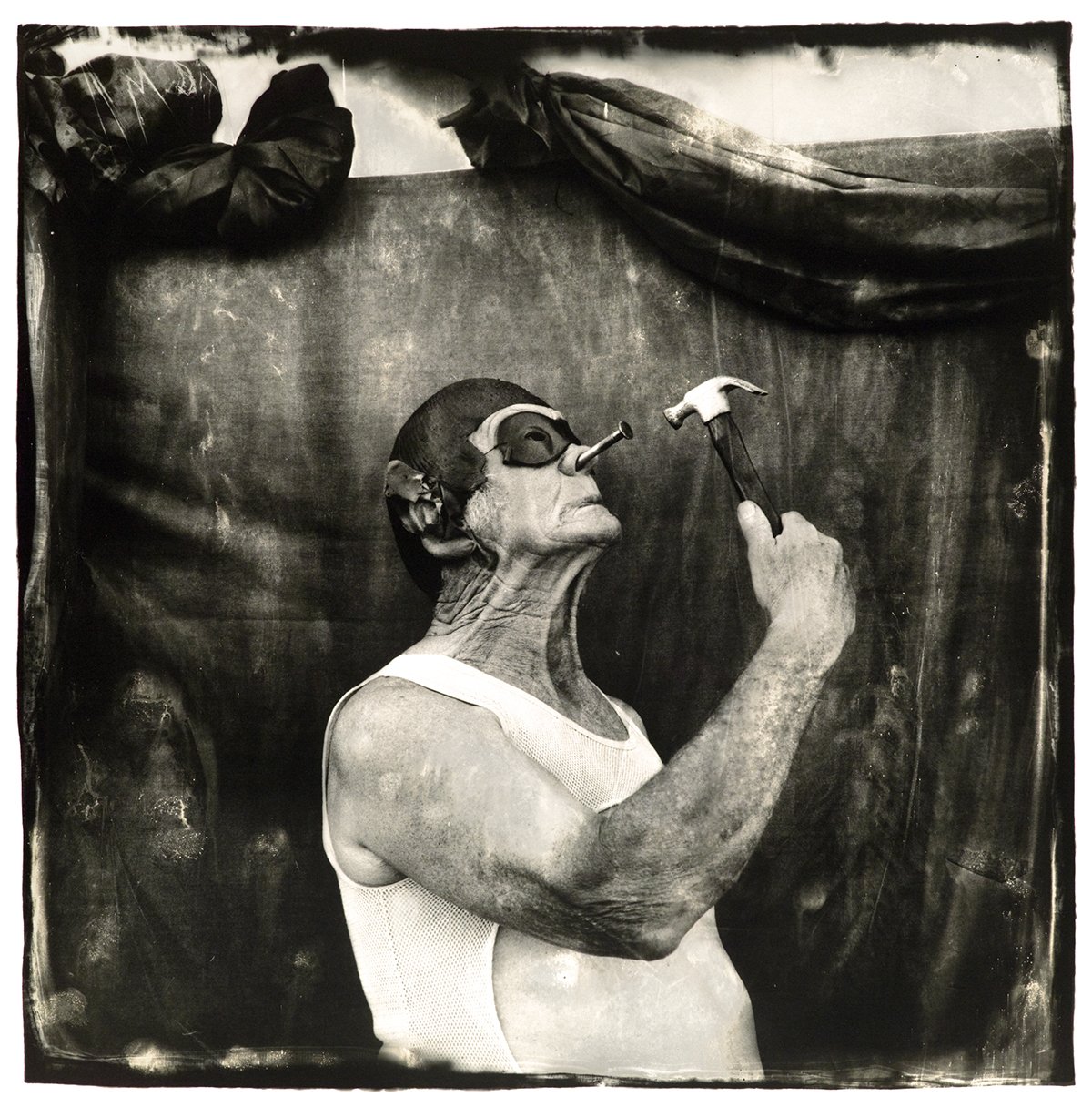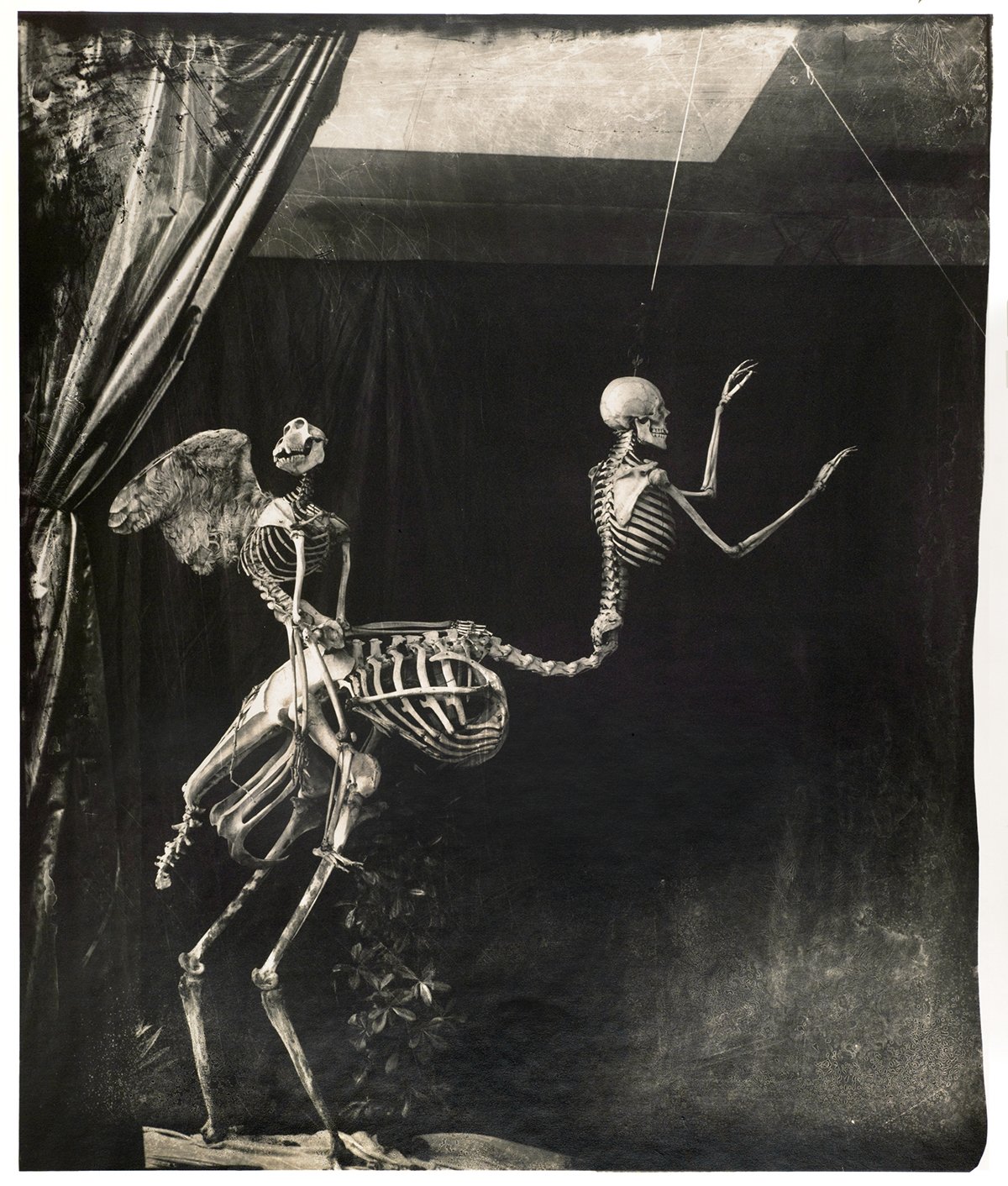JOEL-PETER WITKIN
THE artmaker
Joel-Peter Witkin is an American photographer who lives in Albuquerque, New Mexico. His work often deals with themes such as death, corpses (and sometimes dismembered portions thereof), often featuring ornately decorated photographic models, including people with dwarfism, transgender and intersex persons, as well as people living with a range of physical features which he is often praised for presenting in poses which celebrate and honor their physiques in an elevated, artistic manner. Joel-Peter's complex tableaux often recall religious episodes or classical paintings.
Joel-Peter claims that his vision and sensibility spring from an episode he witnessed as a young child, an automobile accident in front of his house in which a little girl was decapitated.
It happened on a Sunday when my mother was escorting my twin brother and me down the steps of the tenement where we lived. We were going to church. While walking down the hallway to the entrance of the building, we heard an incredible crash mixed with screaming and cries for help. The accident involved three cars, all with families in them. Somehow, in the confusion, I was no longer holding my mother's hand. At the place where I stood at the curb, I could see something rolling from one of the overturned cars. It stopped at the curb where I stood. It was the head of a little girl. I bent down to touch the face, to speak to it – but before I could touch it someone carried me away.
Joel-Peter says his family's difficulties also influenced his work. His favorite artist is Giotto and his photographic techniques draw on early Daguerrotypes and the work of E.J. Bellocq. Those of Joel-Peter's works which use corpses have had to be created in Mexico to get around restrictive US laws. Because of the transgressive nature of the contents of his images, his works have been labelled as exploitative and sometimes shock public sensibilities. Joel-Peter's techniques include scratching the negative, bleaching or toning the print, and using a hands-in-the-chemicals printing technique. This experimentation began after seeing a 19th-century ambrotype of a woman and her ex-lover who had been scratched from the frame.



